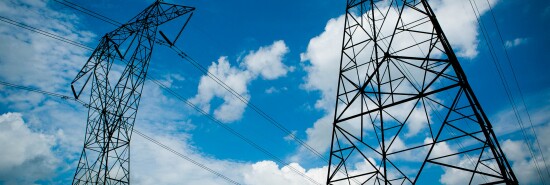
HR 1 will deliver lower emissions, lower costs, and more energy independence
Reps. John Curtis (R-UT) and Mariannette Miller-Meeks (R-IA)
Video Embed
People have made it clear that they want affordable, reliable, and clean energy. For too long, Washington’s energy policy has been distorting free markets to pick winners and losers, while spending trillions of taxpayer dollars in an effort to reduce emissions.
As the leaders of the Conservative Climate Caucus, we are fully committed to leaving this Earth better than we found it. However, just because we care about this Earth doesn’t mean we must endorse policies that hurt our economy while letting foreign polluters, particularly China, off the hook.
HOUSE REPUBLICANS’ FIRST BIG LEGISLATIVE TEST
As Republicans, we support policies that can lower energy costs for people, help our nation become energy independent, and lower global carbon emissions. This is why HR 1, the Lower Energy Costs Act, is so important. It helps us accomplish all three.
Put bluntly, we can’t spend our way out of permitting delays. Department of Transportation and Department of the Interior projects alone have approval processes ranging from five years to 15 years. As members of Congress, we have the privilege of meeting many of the brightest minds running the largest energy companies in the world, and without fail, they say the same thing: A clean energy future is impossible without permitting reform.
These opinions aren’t just limited to energy CEOs, though. According to a recent poll from Citizens for Responsible Energy Solutions Forum, 80% of people support policies that expedite government review of infrastructure projects. This is why permitting and regulatory reform are at the heart of HR 1, allowing us to get energy to the public and the world more quickly. As fiscal conservatives, we also take pride in the fact that responsible permitting reform has the opportunity to lower emissions while also costing zero taxpayer dollars.
HR 1 didn’t just fall out of thin air. House Republicans committed to unleashing American clean energy, which is why Speaker Kevin McCarthy (R-CA) created the Energy Climate and Conservation Task Force in the 117th Congress to build consensus around an energy road map. Heavily influenced by the task force’s report, HR 1 includes all kinds of resources, from our natural gas, which is produced cleaner than anywhere else in the world, to the critical minerals we need for renewables, energy storage, and future technologies.
America has vast natural resources, and opening domestic mining and manufacturing can begin to replace a critical minerals supply chain dominated by China. We cannot build a clean energy future that is reliant on minerals produced by countries with human rights violations and without any regard for environmental standards.
HR 1 is not just about advancing American energy. It is also critical to lift communities at home and abroad out of energy poverty. We cannot leave the developing world in the dark, and HR 1 can help provide them with access to cleaner, more affordable energy.
This legislation is an opportunity for the United States to reemerge as a global leader and power the world with our clean resources, all while creating more jobs at home. It’s past time for the U.S. to rise to the occasion and provide clean, affordable, and reliable energy to the world. If we can set the standard, other nations are sure to follow.
HR 1 is the result of the hard work of various congressional committees, the Energy Climate and Conservation Task Force, and input from countless members of Congress. As such, we should all support HR 1 and send this critical bill to the president’s desk. It’s time to prioritize American energy and unleash the full potential of our energy resources. HR 1 can make it happen.
CLICK HERE TO READ MORE FROM THE WASHINGTON EXAMINER
Reps. John Curtis (R-UT) and Mariannette Miller-Meeks (R-IA) are the chairman and co-chairwoman of the Conservative Climate Caucus.
